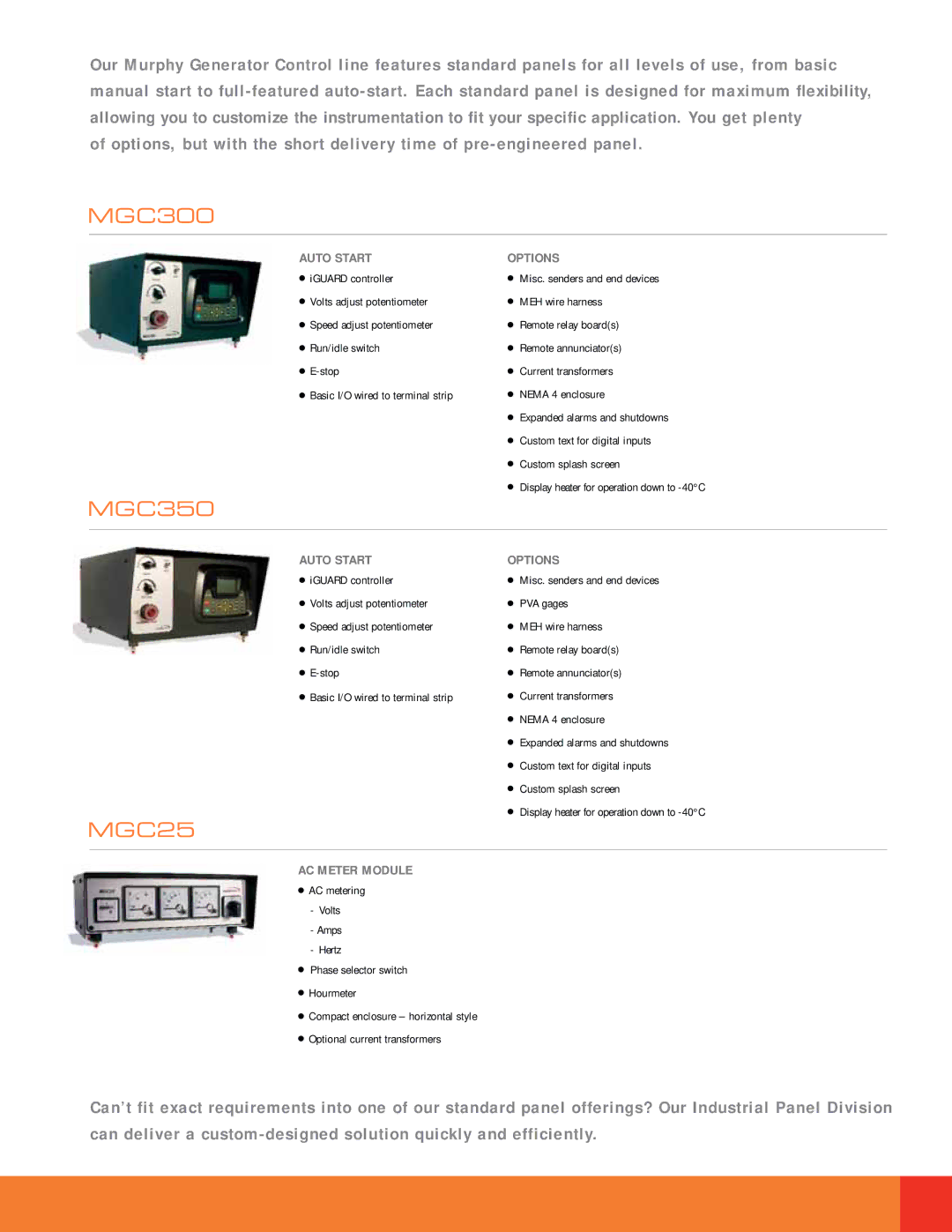MGC 150 specifications
The Murphy MGC 150 is an advanced, multifunctional gauge designed specifically for monitoring and controlling critical parameters in a variety of industrial settings. This versatile device finds its applications in sectors such as oil and gas, water management, and renewable energy, among others.One of the primary features of the MGC 150 is its ability to provide real-time data on pressure, temperature, and level measurements. It is equipped with multiple input channels that allow users to connect various sensors. This flexibility enables the MGC 150 to cater to diverse operational needs, making it a reliable choice for different applications.
Another standout characteristic of the MGC 150 is its user-friendly interface. The device features a large, easy-to-read LCD display that provides clear visual indications of operational parameters. Users can quickly adapt to the system without extensive training, ensuring operational efficiency. The intuitive menu navigation allows users to access settings and data easily, enhancing overall productivity.
The Murphy MGC 150 also incorporates advanced communication technologies. With support for MODBUS, CANbus, and other networking protocols, it can seamlessly integrate with existing industrial control systems. This connectivity facilitates remote monitoring and control capabilities, allowing operators to manage equipment efficiently from a distance.
Along with its robust hardware, the MGC 150 includes advanced diagnostic capabilities. The device can perform self-checks and provide alerts in case of anomalies or deviations from preset thresholds. This feature helps prevent potential failures and reduces downtime, ultimately saving costs and enhancing system reliability.
Durability is another hallmark of the MGC 150, designed to withstand harsh environmental conditions. Its rugged housing is built to endure extreme temperatures, humidity, and vibration, making it suitable for outdoor installations and demanding industrial environments.
In conclusion, the Murphy MGC 150 is a sophisticated, durable, and versatile monitoring and control solution. Its real-time measurement capabilities, user-friendly design, advanced communication options, and robust diagnostics make it an ideal choice for industries requiring reliable performance and high efficiency. By investing in the MGC 150, organizations can ensure optimal operation, improved safety, and reduced operational costs.

